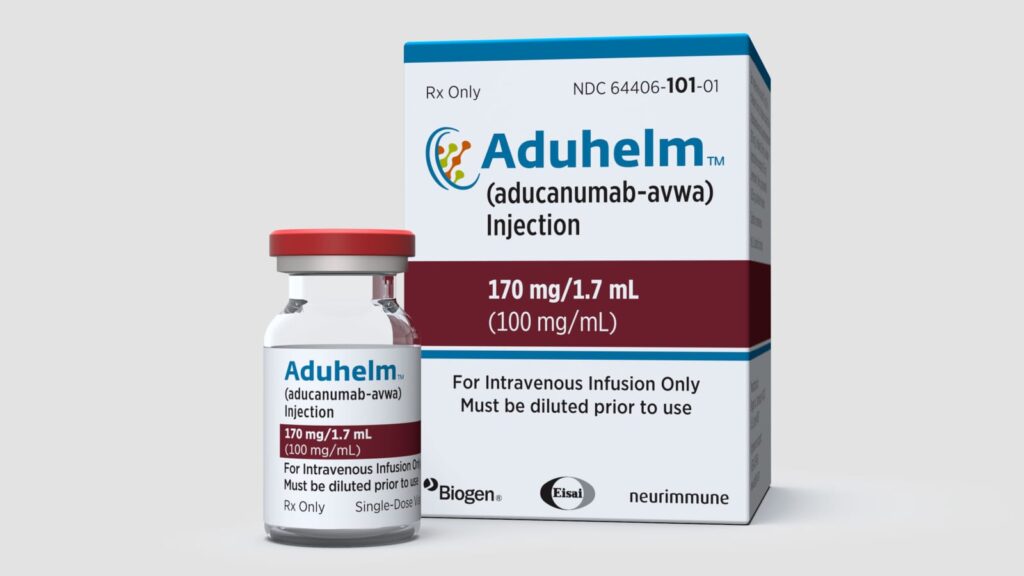OPINION: New Alzheimer’s drug needs immediate cost and distribution regulations

Aducanumab, a new Alzheimer’s medication, was granted accelerated approval by the Food and Drug Administration (FDA) on June 7. While possibly revolutionary for the 6.2 million Alzheimer’s patients currently in the U.S., there are many concerns surrounding its safe use and cost to uninsured patients.
The medication, branded as Aduhelm by its creator Biogen, is the first Alzheimer’s drug to treat the underlying disease rather than simply managing symptoms like anxiety and insomnia, according to an FDA press release about the medication approval. It won’t cure the disease, but it aims to slow cognitive decline.
Such an important, life-changing drug should be accessible and distributed with care, neither of which are occurring right now. Aduhelm’s list price hits five figures, and the drug could be misused for diseases similar to Alzheimer’s to which the drug actually wouldn’t be responsive, according to Director of Clinical Research for the USF Health Byrd Alzheimer’s Center and Research Institute Dr. Amanda Smith.
The FDA needs to mandate specific testing for those interested in receiving the drug to ensure it will be effective for those patients, and President Joe Biden and Congress need to take a stand against Biogen to publicly name and shame company leaders until they lower the exorbitant costs of the medication or until proper legislation regulating U.S. drug prices can be passed.
Florida had the second highest number of citizens ages 65 and older with Alzheimer’s in 2020, according to a 2021 special report on demographics from the Alzheimer’s Association. With over 580,000 people suffering from Alzheimer’s, the state is home to nearly a quarter of the country’s patients in need of impactful and affordable treatment for the neurodegenerative disease.
Such a drug comes at a high cost, however, draining patients without insurance of $56,000 a year, or $4,312 per infusion every four weeks, according to Biogen. Prior to FDA approval, the Institute for Clinical and Economic Review wrote May 5 in a report on Aduhelm that its price should be between $2,560 to $8,290 a year because current evidence is insufficient to conclude whether benefits of the drug outweigh potential harms.
Smith acknowledged in a June 15 interview with The Oracle what an exciting opportunity Aduhelm presented, though she said many low-income individuals or those without insurance may be excluded from access.
“It’s $56,000 a year for the drug itself, not including the … time and the infusion center and all that,” Smith said. “Until there’s insurance coverage for it, it’s a drug that’s not going to be utilized very much because only extremely rich people can get it.”
Patients with similar neurodegenerative conditions could soon be forking over this money for Aduhelm when it may not even treat their condition, according to Smith.
Alzheimer’s is a result of naturally occurring proteins binding together into clumps called amyloid plaques. These clumps build up around brain cells, disrupting their function and contributing to cognitive decline, according to the Alzheimer’s Association.
There are tests that show whether a person has amyloid plaque, the indicator of an Alzheimer’s patient. These tests, however, are not mandated by the FDA in order to receive Aduhelm.
“A lot of people are labeled as having Alzheimer’s when in fact they have Lewy body [dementia], vascular dementia or some other non-Alzheimer’s process that is not in any way going to benefit from this type of drug,” Smith said.
She said amyloid testing offered by the USF Health Byrd Alzheimer’s Institute isn’t covered by any insurance. The tests, such as positron emission tomography (PET) scans and blood testing, all range from $1,300 to $4,000.
“Until there’s some routine coverage for these tests as a precursor to getting the drug, it’s going to prohibit a lot of people from being referred for it,” Smith said.
None of this would be an issue if health care was a basic right as a U.S. citizen. Biden pledged such a thing during his 2020 campaign, claiming to “ensure health care is a right for all, not a privilege for just a few,” but has yet to follow through on this pledge.
Rather than offer universal health care, the State-Based Universal Health Care Act was introduced to the House of Representatives back in 2019 by Rep. Ro Khanna. If passed, this bill would rely on states taking action to provide free health care separately, in hopes of one state taking action and having others follow. However, there’s no evidence this would take place, as no actions have been taken to move this bill forward for two years.
The FDA should heed both the public and scientists’ concerns by mandating amyloid testing prior to prescribing Aduhelm. The drug as well as testing should be regulated by Biogen with serious pressure from Congressmembers and Biden to help lower the price to what analysts have predicted as a fair cost as a concession until free health care can truly be achieved.
Aduhelm, while paving the way for many Alzheimer’s medications to come, still has some work to do. Without proper cost and distribution regulations, the medication will never be able to effectively help lessen the suffering of millions of Americans with the disease.







